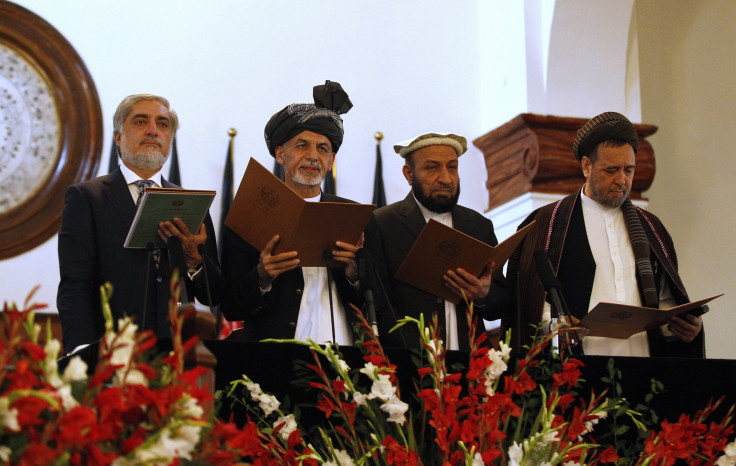Kabul Blast Kills 7 As Ashraf Ghani Is Sworn In As Afghanistan's President

Update as of 6:06 a.m. EDT: The number of fatalities in an explosion on the road to Kabul airport has reached 7, according to BBC. The attack, which came around the time that the country was preparing to welcome Ashraf Ghani as its new president, who took over from Hamid Karzai on Monday, also injured seven.
Update as of 2:37 a.m. EDT: An explosion near Kabul airport killed four people and injured at least eight others, NBC reported Monday, as Ashraf Ghani was sworn in as the country's new president. A few hours before the swearing-in ceremony, the nation's capital witnessed another blast but no one was injured, the report added.
Earlier in the day, Taliban attacks killed 10 people in Paktia province in the country's east, in a reminder of the security challenges that face the new government, which took over in the first, albeit messy, democratic transition of power in Afghanistan.
Update as of 2:25 a.m. EDT: Ashraf Ghani Ahmadzai has been sworn in as the president of Afghanistan, according to reports.
Update as of 2:10 a.m. EDT: Amid beefed up security in the Afghan capital of Kabul ahead of the presidential inauguration ceremony, the Taliban launched a series of attacks in the eastern Paktia province, killing at least 10 people, Al Jazeera reported Monday.
Two bomb explosions were also reported from Kabul early on Monday. However, no injuries were reported in the attack.
In a historic ceremony marking the first democratic transition of power in the strife-torn country, Afghanistan will inaugurate its new president on Monday.
Ashraf Ghani will succeed Hamid Karzai, who has held the post since 2004, ending a three-month long political gridlock gripping the country since the conclusion of the fraud-tainted presidential elections in June, according to media reports.
Ghani’s swearing-in as the president comes just a week after a United States-brokered deal resolved the deadlock between Ghani and his arch rival Abdullah Abdullah through an untested power-sharing arrangement. Abdullah is scheduled to take charge as the country’s first-ever chief executive officer -- a newly created post with powers similar to the prime minister’s.
The power-sharing agreement was signed to restore political stability as both Ghani and Abdullah claimed to have won the elections, threatening to plunge Afghanistan into a crisis that could have triggered nationwide unrest, and even civil war, according to media reports.
According to the agreement, signed on Sept. 21, the new government will be “a genuine political partnership between the president and the CEO (chief executive officer) under the authority of the president,” Agence France-Presse, or AFP, reported Monday.
Last week, the Taliban had described the deal -- dubbed the "unity" deal -- as a “U.S.-orchestrated sham,” but Ghani hailed it as a “big victory,” according to BBC.
“This national unity government is not a sharing of power, but a sharing of duties,” Ghani said, according to an AFP report. Abdullah also welcomed the formation of the national unity government, reportedly calling it “the best alternative and best choice” for the people of Afghanistan.
The new government will be faced with a number of issues, including formulating a new bilateral security deal with the U.S. to pave the way for the exit of foreign troops, reviving the economy of Afghanistan, which is largely dependent on foreign aid, and negotiating with the Taliban, which has reportedly labeled both Ghani and Abdullah as “American puppets.”
© Copyright IBTimes 2025. All rights reserved.






















